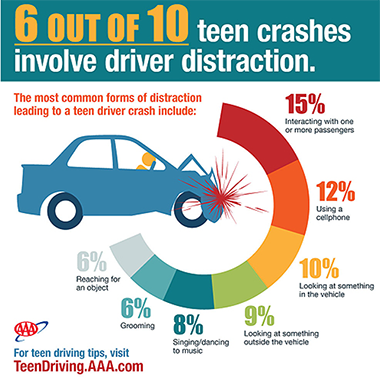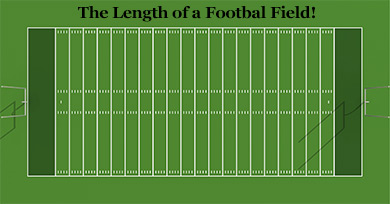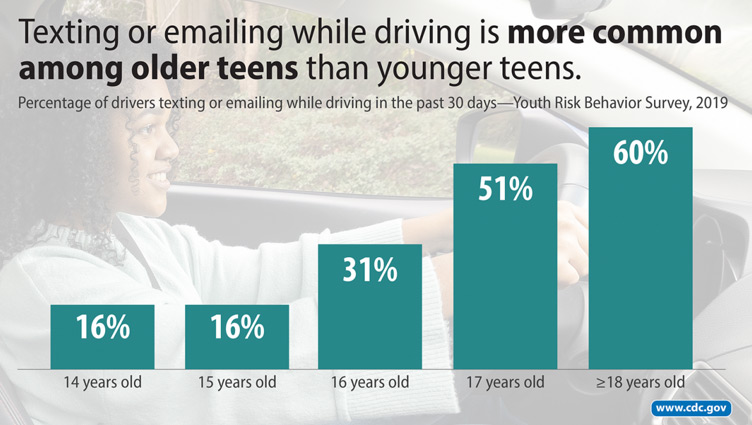In 2020, distracted driving claimed 3,142 lives in the United States.1 According to the Center for Disease Control and Prevention (CDC), nine people in the United States are killed every day in crashes that are reported to involve a distracted driver.1
According to the National Highway Traffic Safety Administration (NHTSA) distracted driving is any activity that diverts attention from driving, including talking or texting on your phone, eating and drinking, talking to people in your vehicle, fiddling with the stereo, entertainment or navigation system-anything that takes your attention away from the task of safe driving.2
There are three main types of distractions:
Examples of distracted driving activities include:

Examples of distracted driving activities include:

